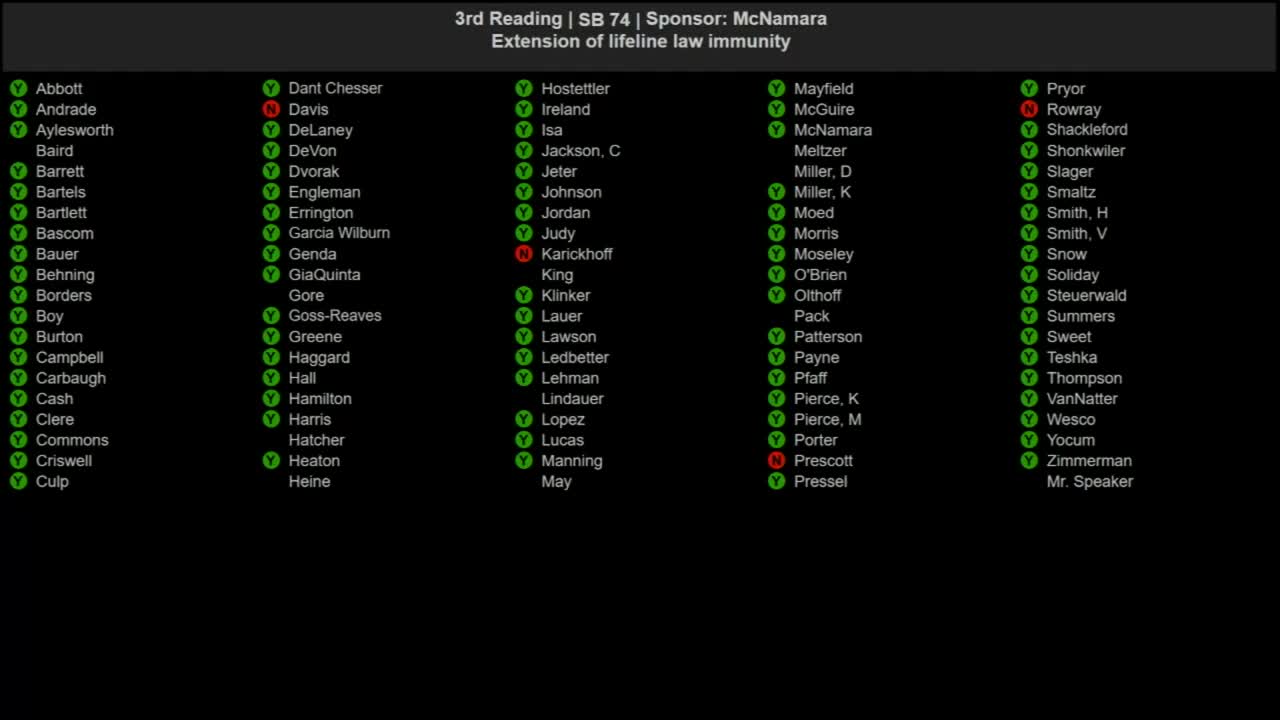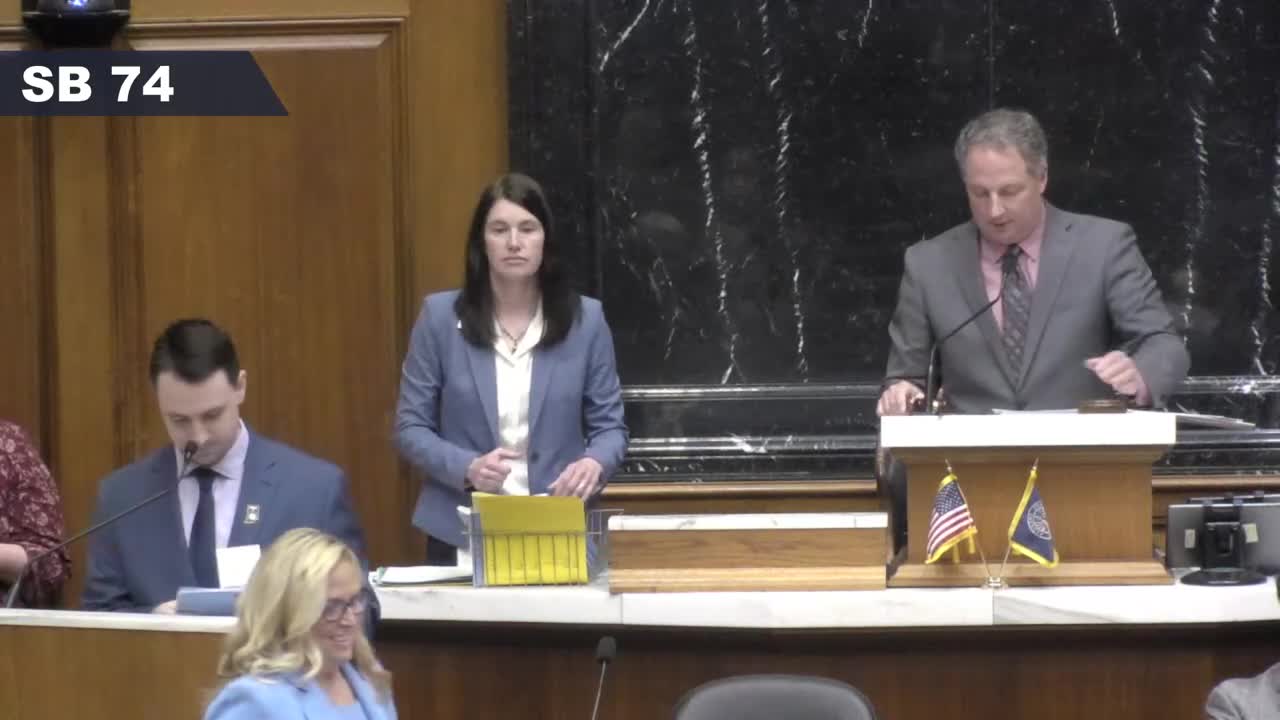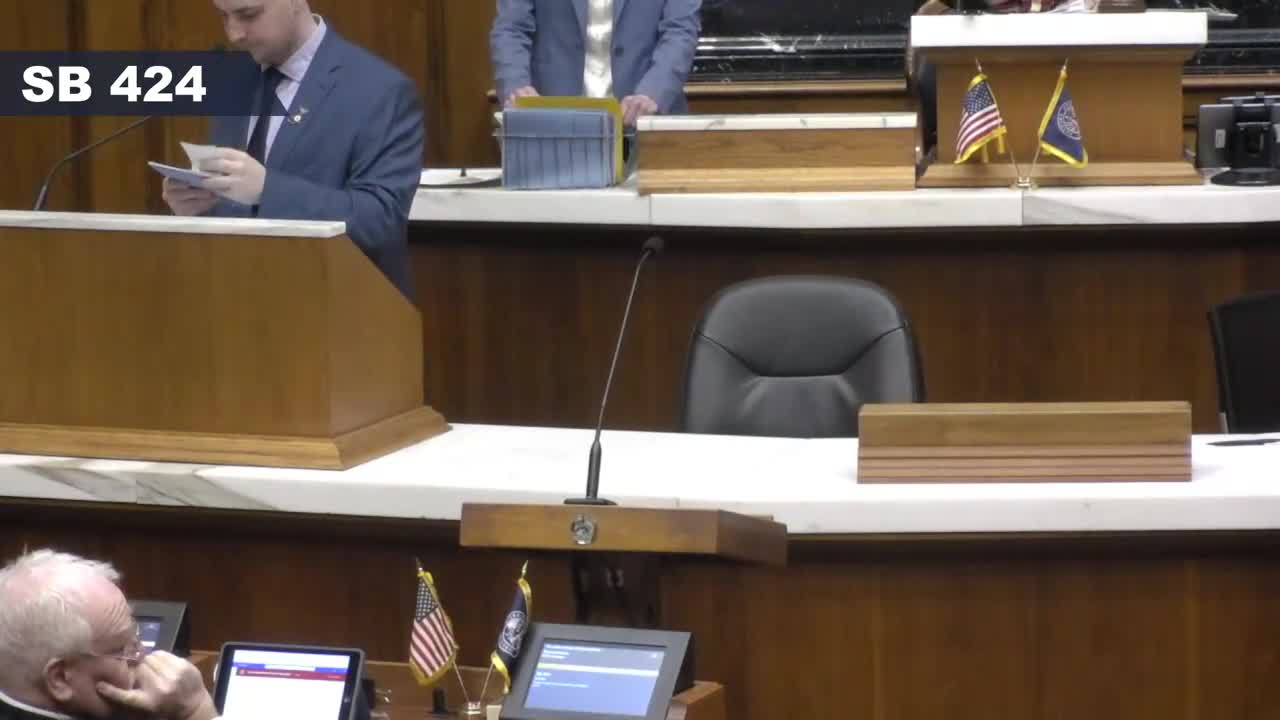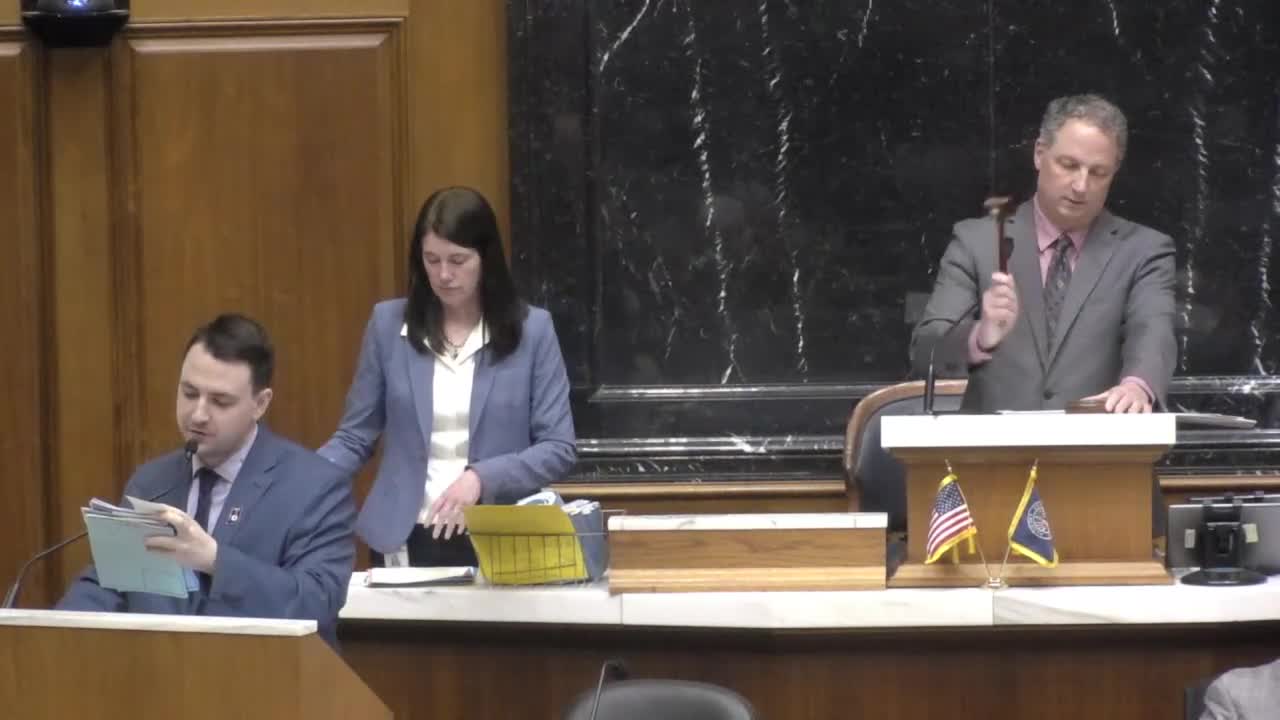Article not found
This article is no longer available. But don't worry—we've gathered other articles that discuss the same topic.

Votes at a glance: selected bills considered on the House floor (transcript excerpt)

House expands 'lifeline' immunity to minors in alcohol-related medical emergencies

House narrowly approves utility bill that lets ratepayers start paying early for small modular reactor projects

